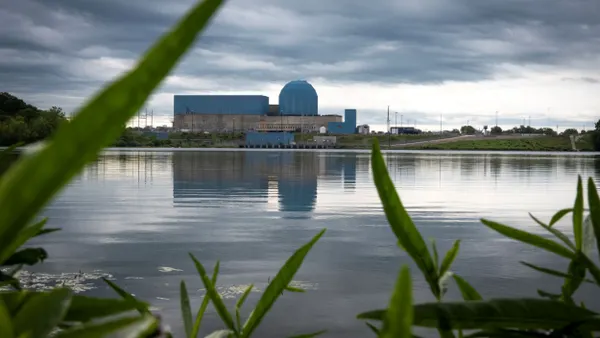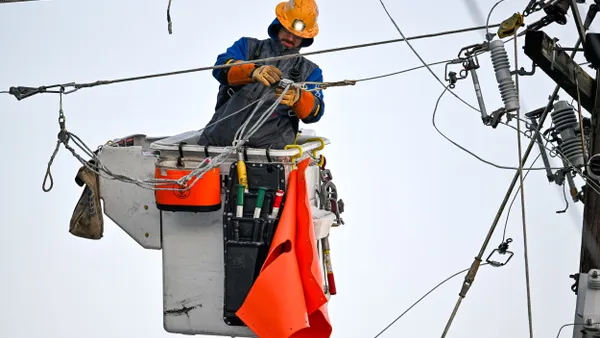Dive Brief:
- Federal Energy Regulatory Commissioner Colette Honorable steps down today, marking the end of a two-and-a-half year term after her appointment by former President Obama in 2014. Her departure leaves one active regulator at the agency as President Trump's three nominees await confirmation by the Senate.
- Honorable oversaw several notable proceedings during her tenure, including a technical conference on wholesale market design and a rulemaking to make a place for energy storage in six wholesale power markets.
- The commissioner, a regular supporter of renewables, told an audience at a Washington energy conference last week to "bring on more renewable energy." The comment came in response to a question about the Trump administration's baseload power review, which seeks to ascertain if growing wind and solar are threatening reliability.
Dive Insight:
Honorable's departure leaves FERC with only one sitting commissioner. The agency has been without a quorum since Chairman Norman Bay resigned in February. Honorable's term wrapped up this month, and she told reporters she didn't want to seek another term.
"I'm going to make a decision that's best for me and my family at this juncture and so what's best for me is to exit at the end of the month," Honorable said.
President Trump nominated three former regulators and Congress aides to fill the vacant spots and bring the agency to four. A Senate committee cleared Pennsylvania regulator Robert Powelson and Neil Chatterjee, both Republicans, but they still await a full Senate confirmation.
Earlier this week, Trump announced he would nominate Democratic Senate aide and former utility executive Richard Glick to FERC. If all are approved, the commission would have two members from each major political party.
Obama appointed Honorable in 2014, and the Senate confirmed her at the end of the year. Before FERC, she served as Chairman and a member of the Arkansas Public Utilities Commission since 2007. A proponent for renewable energy, she touted the importance of fuel diversity during her speech at the Energy Information Administration's annual conference in Washington.
"We have seen so much change in a very short period of time," Honorable said, referring to the explosion of natural gas since the mid-2000s and the parallel growth of renewable energy.
"Yes, gas is an important part (of the power mix) but I can't help but harken back to my early days as a regulator and urging all of us to continue to ensure fuel diversity," Honorable said. "We need it all."
Natural gas for the first time surpassed coal as the prime power resource in 2016, a result of "economics," Honorable added.
Coal and nuclear have taken a beating in the wholesale power markets thanks to an influx of cheap natural gas. The demise of coal in particular spurred Energy Secretary Rick Perry to commission a review of baseload generation to weigh the impacts of subsidized resources such as wind and solar on the grid.
The Trump administration singled out coal as a resource to preserve. EPA Administrator Scott Pruitt said utilities need the ability to store "solid hydrocarbons onsite" to call on during times of peak demand.
Honorable said regulators must "remove barriers" to the integration of renewable energy, and ensure competition of "all resources" in fuel-agnostic markets. Honorable throughout her speech avoided direct criticism over the Trump administration's skepticism of renewable energy and support of fossil fuels. She did, however, address fears that renewable energy undermined the reliability of the grid.
"We need to think about ways in which renewable energy is being developed, where it's being developed," she said. "Do we recognize that renewables have different attributes? Yes. Do we recognize that we must ensure the proper support for renewables? Yes."
"Do I believe [renewables] are impacting grid reliability? Absolutely not," she said. "I don't see any problems with reliability and I say bring on more renewable energy."












